Politics
/ArcaMax

Editorial: A building boom on federal land? It just might work
Amid the relentless chaos in Washington — tariffs, trade war, terminally rising deficits — at least one sensible idea has recently emerged: The federal government wants to free up more land to build homes. It’s a great ambition. The devil, as ever, will be in the details.
Few problems vex Americans more than the struggle to find ...Read more

Juan Pablo Spinetto: Latin America's baby bust is arriving early
Latin America’s demographic time bomb keeps ticking.
Data published in the past few weeks confirm the quick decline in the region’s fertility levels, with the number of births in Brazil falling to the lowest in close to 50 years. In Argentina, the number of newborns has almost halved in just a decade, with kindergartens struggling to find ...Read more

Lara Williams: Deadly fungi are here, and they're spreading
What spoils our crops, kills about six times more people than malaria every year and is breathed in by each of us every single day? It’s not a virus or bacteria, but something even more formidable: fungi.
Aspergillus spores, for example, are ubiquitous in our environment. Most of the time, this group of molds cause no harm, but exposure to a ...Read more
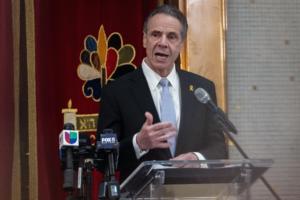
Editorial: A phony DOJ probe of Cuomo: Investigation into Cuomo continues Justice politicization
The Justice Department criminal probe of Andrew Cuomo for supposedly committing perjury in testimony to Congress is just more garbage from a DOJ that has become hyper political and partisan under Donald Trump. Meant to hurt the frontrunning mayoral candidate weeks before the Democratic primary, it may actually help the former governor.
Remember...Read more
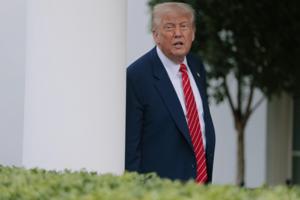
Commentary: Trump's first 100 days changed the game – the next 1,300 could change the nation
The country has now witnessed and felt the first 100 days of President Donald Trump’s second term. These days were filled with unrelenting, fast-paced executive action.
He signed a record-breaking number of executive orders, though many have been challenged and may be reversed. Working with Congress to pass legislation, though more difficult...Read more

Commentary: When the heat rises, so should our compassion
As the days stretch longer and the sun warms our skin, many of us are drawn to the joys of summer — backyard barbecues, beach outings and long-awaited vacations. But as we embrace the season’s pleasures, let’s remember that we’re not the only ones stepping into the sunshine. Other animals, too, are venturing out after the long winter —...Read more
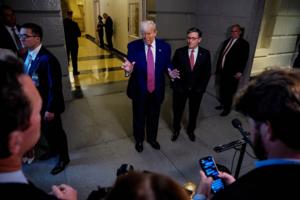
Editorial: Republicans need to show work requirements can work
For weeks, Republicans in Congress have been haggling over cuts to Medicaid, the health care program for the poor. Some lawmakers see an opportunity to offset the cost of extending $5 trillion in tax cuts, a priority for the White House. Others worry their constituents could lose access to critical care.
Of the myriad proposals that have been ...Read more

James Stavridis: How can Europe deter Putin? Revive the 'Reforger'
When I was a junior officer during the Cold War, the biggest North Atlantic Treaty Organization military training exercises — perhaps the largest in history — were annual drills called Exercise Reforger. The goal was to ensure NATO’s ability to deploy troops rapidly to West Germany if war broke out between the alliance and the Soviet Union...Read more
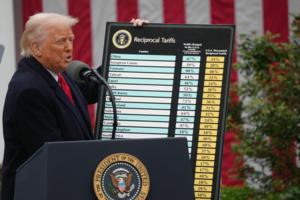
Commentary: The hidden moral cost of America's tariff crisis
In the spring of 2025, as American families struggle with unprecedented consumer costs, we find ourselves at a point of "moral reckoning."
The latest data from the Yale Budget Lab reveals that tariff policies have driven consumer prices up by 2.9% in the short term. In comparison, the Penn Wharton Budget Model projects a staggering 6% ...Read more

Commentary: Trump's policing policies threaten human rights
In late April, President Donald Trump issued an executive order that expands the federal government’s power over local and state police. The order is a recipe for abuse. The return to the overt embrace of mass incarceration through expanded funding and other support for police and prisons, coupled with the divisive underlying rhetoric of law-...Read more

Editorial: Norm on 'Cheers'? George Wendt meant far more to Chicagoans
Anyone who craved a life of sitcom fame had not spent time with George Wendt, a man who could not walk into a restaurant or take a stroll in the fresh air without cacophonous cries of “Norm!” coming at him from all directions from the mouths of people who seemed to think they were the only people ever to be so witty.
Being a gentle and kind...Read more

Editorial: Speak incautiously about race, Mr. Mayor, and you invite federal scrutiny
On Sunday, Mayor Brandon Johnson visited one of Chicago’s megachurches, the Apostolic Church of God in Woodlawn.
The mayor sat down in front of the large South Side congregation for a discussion with the church’s pastor, Dr. Byron Brazier. Speaking about economic development, Johnson talked of the resources and investments his ...Read more
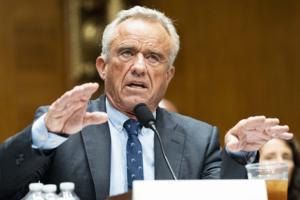
Editorial: RFK is weaponizing junk science to undermine abortion rights
As Missouri and many other states continue their fractious political battles over the issue of reproductive rights, a Trump administration project is threatening to undermine those rights nationally: The Food and Drug Administration is unilaterally launching a “safety review” of mifepristone, the widely used abortion-inducing medication, ...Read more

Editorial: Normalizing illegal immigration helps no one
Massachusetts Gov. Maura Healey committed an act of Democratic heresy Tuesday, saying “I think that some of what Donald Trump has done on the border makes a lot of sense.”
“I won’t get into specifics, but the general move and recognition that there needed to be more control brought to the border is absolutely correct. And certain things...Read more

COUNTERPOINT: Yes, we can still count on the young to defend America
As we approach Memorial Day and honor the hundreds of thousands of young, brave Americans who have lost their lives in defense of the United States, one can’t help but wonder if today’s youth would answer the call to duty as eagerly as their parents and grandparents did during times of crisis.
We’ve been told today’s youth are soft. ...Read more

Commentary: Trump is sabotaging America's greatest demographic advantage
“A profoundly dangerous and destabilizing thing.” That’s how Vice President JD Vance recently described America’s falling birthrate. Recently, the “inherently pronatalist” White House is considering a new set of proposals to address it — including government-funded menstrual cycle education and even a national medal for women who ...Read more

Commentary: Immigration procedures should be modeled after TSA PreCheck
The Trump administration is working to secure the borders and deport criminal aliens from the country. So far, the very blunt criteria being used is that anyone who has broken any law, even something as benign as a speeding ticket, may place them at risk of deportation.
Such a chaotic approach is creating anxiety not only amongst undocumented ...Read more

POINT: No, and it's not the young adults' fault
As we approach Memorial Day, it is sobering to recognize that today’s young people are unlikely to respond as enthusiastically to a call to serve their country as members of the World War II generation did 80 years ago. Young people do not exhibit the high levels of patriotism and commitment to democracy found among earlier generations. ...Read more

Editorial: The hits just keep coming from Chicago's disastrous parking meter deal
How do you sleep at night? That’s the question Chicagoans should be asking the private investors behind the city’s infamous parking meter lease deal — a group that may soon squeeze another $15.5 million out of taxpayers, not for broken meters or breached contracts, but because former Mayor Lori Lightfoot dared to suspend parking ...Read more
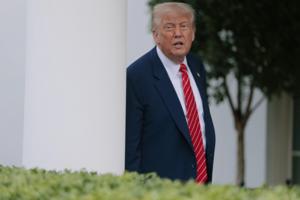
Commentary: Stop the political theater and fix the broken immigration system
The strength of our nation is in the diversity of its people.
The greatness of this nation will further be elevated by fixing the immigration system that has been broken for too long. President Donald Trump’s latest executive order threatening to withhold funds from sanctuary cities and states while escalating the rhetoric on deportations ...Read more























































